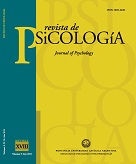Education a la prosocialite comme instrument de cohesion sociale au Rwanda
Keywords:
education, prosocial behavior, interpersonal prosocial cognitive problem solving, social cohesionAbstract
Prosocial behaviors are considered incompatible with violence and aggressiveness and contribute to efficient reciprocity, solidarity and social cohesion. This study aims at applying and assessing the effects of Interpersonal Prosocial Cognitive Problem Solving, a program for promoting prosocial behavior among young Rwandan children attending primary school. The program participants are 118 pupils divided into four classes of which two form an experimental group (n = 59) and two others a control group (n = 59). Pre- andpost-tests were administered. The results of this study showed that the children who took part in the program acquired skills for solving interpersonal problems by way of adopting prosocial strategy and significantly increased their prosocial behaviors. The results of this study can have direct repercussions on future research initiatives in the fields of promotion of social cohesion, as well as of policy making.
Downloads
References
Altounian, J. (1990). Ouvrez-moi seulement les chemins d’Arménie. Un génocide aux déserts de l’inconscient. Paris, France: Les Belles Lettres.
Arct-Ruhuka (2005). Le traumatisme psychologique au Rwanda: Etat de la question onze ans après le génocide de 1994. Kigali, Rwanda: UNR.
Bagozzi, R. (1994). The evaluation of structural equation models and hypothesis testing. In R. Bagozzi (ed.). Principles of marketing research (pp. 386-422). Cambridge (MA), USA: Blackwell.
Caprara, G. V. & Pastorelli, C. (1993). Early emotional instability, prosocial behavior and aggression: Some methodological aspects. European Journal of Personality, 7, 19-36.
Caprara, G. V., Barbaranelli, C., Pastorelli, C., Bandura, A. & Zimbardo, P. G. (2000). Prosocial foundations of children’s academic achievement. Psychological Science, 11, 302-306.
Dushimimana, F. (2010). Promouvoir le comportement prosocial: Effets du programme adapté d’Interpersonal Cognitive Problem Solving auprès d’élèves du primaire au Rwanda. Thèse de doctorat. Rome, Italy: Université Pontificale Salésienne.
Erny, P. (2004). “Races” et “ethnie” au Rwanda selon l’historien Bernard Lugan. Dialogue, 235, 3-13.
Gasibirege, S. & Misago, C. (2000). Approche de la prévention en santé mentale. Kigali, Rwanda: Ministère de la santé- Médecins du Monde.
Kleber, R. J., Figley, C. R & Gersons, B. R. (1995). Beyond Trauma: Cultural and Societal Dynamics. New York, USA: Plenum Press.
Ndayambaje, J. D. (2001). Le génocide au Rwanda: Une analyse psychologique. Récupéré le 22 février 2009 de: www.asf.be/AssisesRwanda2/fr/AnalysePsy.
Pastorelli, C., Barbaranelli, C., Cermak, I., Rozsa, S. & Caprara, G. V. (1997). Measuring Emotionnal Instability, Prosocial Behavior and Aggression in Pre-Adolescents: A Cross-national Study. Personality Individual Differences, 23 (4), 691-703.
Pedhazur, E. J. & Pedhazur, L. (1991). Measurement design and analysis: an integrated approach. Hillsdale, USA: Lawrence Erlbaum.
Penner, L. A., Dovidio, J. F., Piliavin, J. A. & Schroeder, D. A. (2005). Prosocial Behavior: Multilevel Perspectives. Annual Review Psychology, 56, 365-392.
Platteau, G. (2007). Rencontre avec des rescapés du génocide rwandais: la transmission de l’irreprésentable est-elle possible? Cahiers critiques de thérapie familiale et de pratiques de réseaux, 38 (1), 81-98.
Ricci, C., Diadori, E. & Pompei, M. (2003). Promuovere l’intelligenza interpersonale. Un programma di problem solving cognitivo-interpersonale nella scuola. Trento, Italy: Erickson.
Roche-Olivar, R. (2002). L’Intelligenza prosociale. Imparare a comprendere e comunicare i sentimenti e le emozioni. Trento, Italy: Erickson.
Roche-Olivar, R. (1997). La condotta prosociale:Terapia del comportamento. Roma, Italy: Bulzoni.
Rowley, P. T. (1990). A classroom model for prosocial behavior development. Unpublished thesis. Arizona, USA: University of Phoenix.
Salfi, D., Monteduro, F. & German, S. (2004). Un programma di educazione alla prosocialità nella scuola elementare. Psicologia e Scuola, 120, 57-64.
Solomon, D., Battistich, V. & Watson, M. (1997). Il progetto di sviluppo del bambino: Realizzazione e valutazione di un programma scolastico di sviluppo sociale, etico e intellettuale dei bambini. In: R. Roche-Olivar (ed.). La condotta prosociale basi teoriche e metodologiche d’intervento (pp. 101-119). Roma, Italy: Bulzoni Editore.
Solomon, D., Watson, M., Delucchi, K., Schaps, E. & Battistich, V. (1988). Enhancing Children’s Prosocial Behavior in the Classroom. American Educational Research Journal, 4, 527-554.
Staub, E. (2003). Thepsychology of good and evil: Why children, adults, and groups help and harm others. New York, USA: Cambridge University Press.
Wispé, L. (1972). Positive forms of social behavior: An overview. Journal of Social Issues, 28, 1-20.
Yeghicheyan, V. (1983). Des problèmes de filiation après le vécu collectif d’un génocide (à propos de la minorité arménienne en diaspora). Revue française de psychanalyse, 4, 971-985.
Downloads
Published
How to Cite
Issue
Section
License














